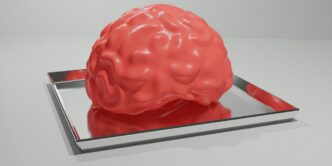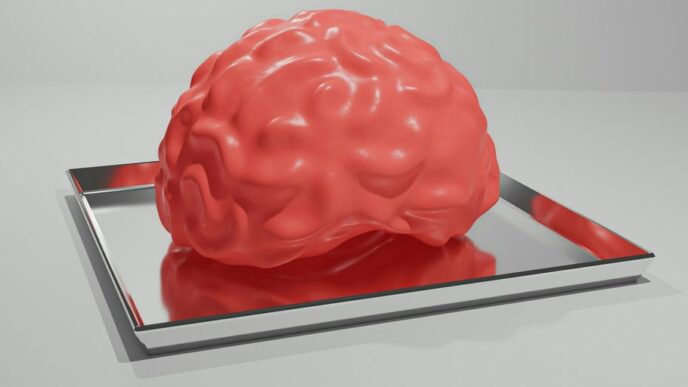As the world rapidly advances towards an era of artificial intelligence, it’s crucial for businesses to adapt and evolve their strategies to stay ahead in the game. And when it comes to human resources (HR), this is no exception. With AI revolutionizing the way we work, communicate, and even recruit talent, there are both exciting opportunities and potential challenges that HR professionals must be ready for. In this blog post, we’ll explore what the future holds for HR in this age of AI – from automating repetitive tasks to using data analytics for smarter decision-making – and discuss how organizations can leverage these advancements to create a more efficient, effective workforce. So let’s dive in!
What is Artificial Intelligence and its Impact on Human Resources Management?
The term “Artificial Intelligence” (AI) was first coined in 1956 by computer scientist John McCarthy. AI is the result of applying cognitive science techniques to artificially create something that performs tasks that only humans can perform, like reasoning, natural communication, and problem solving. The application of AI within the field of Human Resources Management (HRM) is still in its early stages, but has the potential to revolutionize the way HR functions.
The use of AI within HRM can help organizations automate repetitive and time-consuming tasks, like candidate screening and performance reviews. Additionally, AI can be used to identify patterns and trends in employee data that would otherwise be undetectable. This allows for more targeted and effective interventions when it comes to things like employee retention and development. AI can help create a more engaging and personalized experience for employees throughout their lifecycle with an organization, from recruitment to retirement.
While there are many potential benefits to integrating AI into HRM, there are also some risks that need to be considered. For example, if not properly implemented or monitored, AI can lead to biased decision-making when it comes to things like hiring and promotions. Additionally, as AI takes on more responsibility within HRM functions, there is a risk of job loss for HR professionals who are no longer needed to perform tasks that have been automated by AI.
AI has the potential to greatly impact HRM for both better and worse. It is important for
Benefits of AI in HR
AI can help organizations keep up with the ever-changing needs of employees. It can also help identify potential issues before they become problems. By automating HR processes, AI can free up time for HR professionals to focus on more strategic tasks. Additionally, AI can help customize and personalize the employee experience, leading to higher engagement and satisfaction.
Challenges of AI in HR
It is no secret that the world of human resources is changing. With the advent of artificial intelligence (AI), HR professionals are facing new challenges. Here are some of the challenges of AI in HR:
Job Losses: One of the biggest challenges of AI in HR is the potential for job losses. As AI takes over more and more tasks, there will be less need for human employees. This could lead to large-scale unemployment, particularly in sectors where AI is adopted heavily.
Bias: Another challenge of AI in HR is bias. As AI technologies become more advanced, they may incorporating biases that exist in society. For example, if an AI system is trained on data from a male-dominated workforce, it may learn to discriminate against women.
Lack of Understanding: A third challenge of AI in HR is the lack of understanding about how AI works. Many people do not understand how AI systems make decisions. This lack of understanding can lead to mistrust and resistance to using AI in HR decision-making processes.
How Can Organizations Leverage AI to Improve Their HR Practices?
Organizations are under constant pressure to improve their HR practices. They need to find new ways to attract and retain the best talent, while also reducing costs and improving efficiency. AI can help organizations achieve these goals by automating HR tasks, providing actionable insights, and enhancing the employee experience.
By automating HR tasks, organizations can reduce the amount of time and resources spent on manual processes. This frees up HR professionals to focus on more strategic tasks that add value to the business. Additionally, AI can help identify patterns and trends in data that would be difficult for humans to spot. This enables organizations to make better decisions about their workforce and take proactive steps to improve employee engagement and retention. AI-powered chatbots and virtual assistants can provide employees with 24/7 access to information and support, enhancing the overall employee experience.
Organizations that leverage AI will be better positioned to meet the challenges of the future and improve their HR practices.
Considerations Before Implementing AI Solutions into Your Organization
Before implementing AI solutions into your organization, there are a few things you should consider. The first is what problem you’re trying to solve with AI. Is it a task that can be automated? Is it a decision that needs to be made? Once you know what you want AI to do, you need to gather data. This data will be used to train the AI model. You also need to consider how this data will be collected and stored. After you have your data, you need to choose an AI platform and algorithm. There are many different types of AI platforms and algorithms, so you need to do some research to figure out which one will work best for your problem. You need to test your AI solution. You don’t want to roll out an AI solution that doesn’t work properly. Make sure to test it on a small scale before implementing it company-wide.
Conclusion
As we move into the age of artificial intelligence, it’s clear that HR will need to adapt in order to keep up with the changes. With AI being used more and more for tasks such as recruiting and performance management, HR professionals will need to be comfortable with using data and analytics to make decisions. Additionally, they’ll need to be able to manage and communicate with AI-powered systems.
Looking ahead, it’s exciting to think about all the possibilities that AI will bring to HR. With its help, we’ll be able to optimize our processes and make better decisions than ever before. We can’t wait to see what the future of HR holds!













